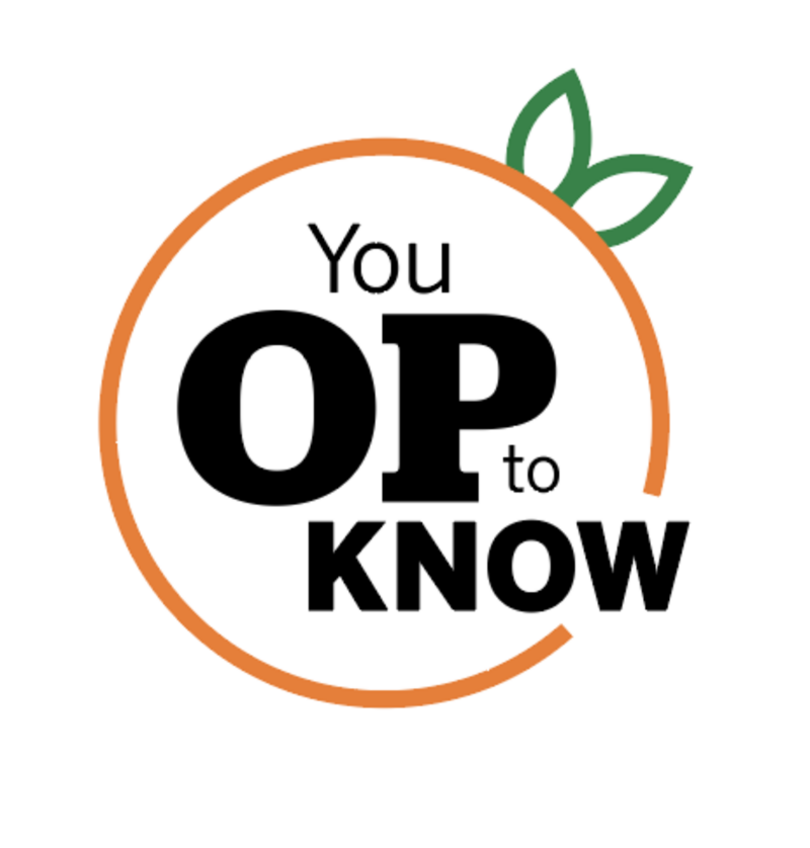You Op To Know: Opinion editors discuss the role of section

Welcome to You Op to Know, The Daily Orange Opinion section’s weekly podcast.
This week, The Daily Orange Opinion section brought on our new Assistant Editorial Editor to discuss opinion sections. If you have any questions or comments, feel free to submit a letter to the editor at opinion@dailyorange.com.
TRANSCRIPT
ALLISON WEIS: Hello everyone, I’m your host and co-producer Allison Weis and welcome to The Daily Orange’s opinion podcast You Op To Know. Next semester, Aishwarya and I are excited to move on to our new roles — Aishwarya as Managing Editor and me as Editorial Editor. Tonight we have our new Assistant Editorial Editor on the show to discuss opinion sections. Welcome, Michael!
MICHAEL SESSA: Hey. Thanks for having me.
WEIS: To wrap up this semester, let’s talk about opinion sections. What do you think is the job of an opinion section at the Daily Orange.
SESSA: So I think the job of an opinion section anywhere really is to kind of distill the news into really usable information for the readers. So, at the Daily Orange, talking about stories or things the school does or things that are happening in the community, and saying something about them. So not just giving you the facts, but giving you the facts and telling you, ‘this is what those facts may mean in my perspective.’ And then empowering people to, I guess, come to some sort of judgement about that.
WEIS: Why do you think people enjoy reading other people’s’ opinions through opinion columns?
SESSA: I think it gives life to the news.
WEIS: I agree.
SESSA: So, where you might just be reading something — occasionally, obviously, there are news stories and completely objective reporting that hits hard, but often times it’s interesting and maybe more digestible for people to hear what somebody else is saying. I think there’s also somewhat of a laxity in the way we write in opinion sections. So it’s more like I’m having a conversation with someone, we’re engaging in a dialogue rather than me just shooting facts at you.
WEIS: We had so many perspectives contributing to election coverage, we covered local environmental issues like protecting Syracuse eagles, we had many columns about trans rights and covered student life issues on and off the Syracuse campus. Out of all of our content, what was your favorite coverage this semester?
SESSA: Well I’m somewhat biased because I was a Gender and Sexuality columnist. But I’m a big fan of that and the liberal and conservative columns too. That’s probably some of the most read content. It’s interesting to hear from students in a way that isn’t just staunchly opinionated views, but actually real thinking about issues. So, actually looking at the facts before we come to an opinion. Looking at something and talking to people — professors that are liberal, or professors that are conservative, or professors that are transgender or gender nonconforming, all these sorts of things — actually getting that perspective and hearing from people so that we can make an opinion. So it’s the process I think I like the most — getting to see how thoughts evolve.
WEIS: And it helps to create a really diverse selection of columnists who are writing for The Daily Orange. So, that is helped by people who are listening or maybe even want to write a column. So if you’re interested, definitely reach out to opinion@dailyorange.com and you can write a column of your own. So, as a columnist, what is the best part of writing a column?
SESSA: I think getting to talk to people, right? I mean, I have a lot of opinions. But very rarely — there are very few people that have the stature where they can just say something and people say ‘well he’s so and so, so that opinion is relevant or correct or important.’ So, for the most part, opinion writing is kind of a battle, right? You’re presenting facts — that’s your artillery — you’re trying to make a point, and you’ve got to win over your audience. So, I think talking to people was what was really cool about writing those columns. And actually hearing from people in a way that might actually be able to change people’s mind or open people’s minds maybe. I know that the engagement we saw on some of the Gender and Sexuality columns was quite good. And there’s certainly some people that just look at a title about gender nonconforming pronouns or something like that and just scoff at the idea. But I think if you really flesh out those ideas and humanize the issue, you can bring people down to a level where they might actually be able to get some momentum.
WEIS: Thanks so much for joining me, Michael. And I’m so excited to work with you next semester.
SESSA: I’m psyched. Let’s do it.
WEIS: The podcast will be back next semester! As always, if you have any questions or comments, feel free to submit a letter to the editor at opinion@dailyorange.com. Have a great break!





